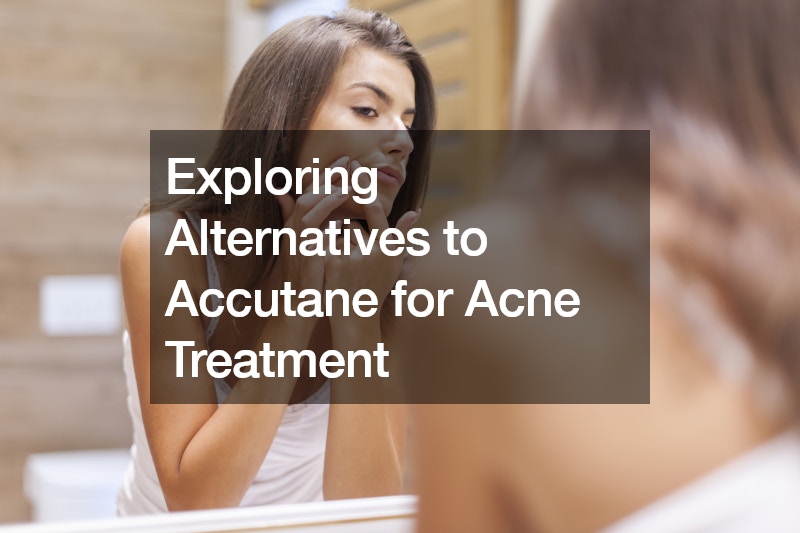Disclaimer: Mladysrecords. This site provides fashion and lifestyle content for informational purposes only.
Dealing with moderate to severe acne can be challenging, and while Accutane is a commonly prescribed medication for its efficacy, it may not be suitable for everyone. In this comprehensive guide, we’ll delve into various alternatives to Accutane, offering a range of solutions for individuals seeking clearer skin.
Understanding Accutane and its Limitations
Accutane, a synthetic version of vitamin A, is known for its effectiveness in treating acne. However, its potential side effects and ineligibility for some individuals warrant exploring alternative options. The most common side effects include dry skin, lips, and eyes, along with possible joint pains and muscle aches.
While there are rumors about links to depression and inflammatory bowel disease, population-based studies show no significant differences in those who take Accutane and those who don’t.
Accutane is typically recommended for individuals with moderate to severe acne, particularly those at risk of scarring due to deeper cystic lesions. It is often considered a last resort after other over-the-counter and prescription treatments have been unsuccessful. Despite its effectiveness, Accutane is not without risks and requires close monitoring for potential side effects.
Topical Retinoids as an Alternative
For those hesitant or unable to take Accutane, topical retinoids offer a viable alternative. Prescription options like Tretinoin and Adapalene can be effective, especially when over-the-counter retinol proves insufficient. These medications work by promoting skin cell turnover and preventing the plugging of oil glands.
Oral Antibiotics for Acne Management
Oral antibiotics, such as doxycycline and minocycline, are commonly prescribed to address acne. While they help reduce inflammation, they are not a long-term solution and may not provide durable results. The risk of antibiotic resistance is a concern, making it crucial to pair these medications with good sun protection practices.
Hormonal Treatments for Acne Control
Hormonal treatments, primarily through birth control pills or medications like spironolactone, aim to regulate hormone levels that contribute to acne. These options are particularly beneficial for women dealing with hormonal acne focused around the chin and jawline. Spironolactone, when used at lower doses, has shown promise in reducing cystic lesions and preventing the need for Accutane in some cases.
Topical Antibiotics and Their Role
Topical antibiotics like erythromycin and clindamycin directly target acne-causing bacteria. However, the risk of antibiotic resistance is a concern, and combining these with benzoyl peroxide can mitigate this risk.
Chemical Peels and Microdermabrasion
Chemical peels and microdermabrasion offer non-pharmaceutical options to exfoliate the skin and address excess oil production. Salicylic acid, glycolic acid, and lactic acid are commonly used for their exfoliating properties. These treatments can help with acne scars, providing an additional benefit.
Laser and Light Therapy for Acne
Advancements in technology have introduced laser and light therapy devices designed to target acne-causing bacteria or sebaceous glands. Red light therapy, in particular, has shown promise comparable to Accutane in some studies. Laser devices like AvaClear and Acure target oil glands and claim to provide results similar to Accutane with fewer side effects.
Diet and Lifestyle Considerations
While controversial, the impact of diet and lifestyle on acne cannot be ignored. A diet high in refined carbohydrates and foods with a high glycemic index may contribute to inflammation and acne. Some individuals may find relief by adopting a whole foods-based diet, reducing processed foods, and avoiding specific dairy products linked to acne.
Natural Remedies and Supplements
In addition to conventional treatments, some individuals explore natural remedies and supplements for acne management. Ingredients like tea tree oil, witch hazel, and green tea extract are believed to have anti-inflammatory and antibacterial properties that may help reduce acne symptoms. However, it’s essential to approach natural remedies with caution and consult a healthcare professional before use.
Stress Management and Skincare Routine
Stress can exacerbate acne symptoms by triggering hormonal fluctuations and increasing inflammation. Implementing stress-management techniques such as mindfulness, yoga, and deep breathing exercises can complement acne treatment efforts. Additionally, establishing a consistent skincare routine tailored to your skin type can help maintain skin health and prevent breakouts.
Consulting with a Dermatologist
When exploring accutane alternatives, consulting with a board-certified dermatologist is crucial. They can provide personalized advice, considering the severity of the acne, individual health factors, and treatment preferences. Each alternative has its own set of benefits and potential risks, and a dermatologist can guide individuals toward the most suitable option based on their unique circumstances.
In conclusion, managing acne requires a multifaceted approach that considers individual factors and preferences. Accutane alternatives offer diverse options for individuals seeking effective and tailored solutions for clearer, healthier skin. By consulting with a dermatologist and exploring various treatment modalities, individuals can take proactive steps towards achieving their skincare goals.
.


